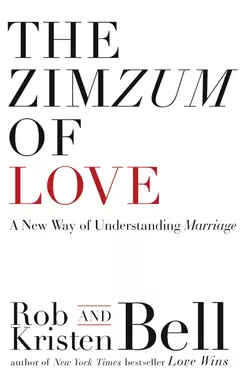The ZimZum of Love: A New Way of Understanding Marriage

Rob Bell
Тип: электронная книга
Жанр: Семейная психология
Язык: на английском языке
Стоимость: 612.81 ₽
Статус: В продаже
Издательство: HarperCollins
Дата публикации: 16.04.2024
Отзывы: Пока нет Добавить отзыв
О книге: Sunday Times bestselling author Rob Bell is joined in this book by his wife of twenty years, Kristen, to present a new way to make marriage work.Marriage is complex because people are complicated. You think you know each other so well that you’re almost one person. But then there are moments when it’s shockingly obvious that you’re two, with two opinions and two ways of doing things. And these moments can be relationship flashpoints – whether it’s over money, politics, childrearing or what you’re going to watch on TV tonight. So how do you stop yourself flaring up when you and your spouse disagree and start seeing marriage as a chance for you to learn more about the person you want to know best of all?Early on in their marriage Rob and Kristen experienced the struggles, disagreements and fights that come to all couples. They still do. But they quickly learned that if they were to fulfil their desire of a great marriage, they had to be proactive, focused and intentional about their relationship – and learn how to fight in the most productive way possible!In this inspiring and humorous insight into their approach to marriage, the popular husband and wife team explore communication, dealing with relatives, sex, petty fights, money, work and boundaries, as well as love, forgiveness, fidelity, faith and hope – because something happens when two people give themselves fully to each other, something profound and mystical, something with endless depth and dimension, something spiritual – and that’s the ZimZum of Love.There’s the ideal of marriage, and then there’s the reality of marriage: this book is about bringing those two closer together.With extensive discussion questions in the endnotes, this easy-to-read book is invaluable for anyone searching for a happy, fulfilling relationship.